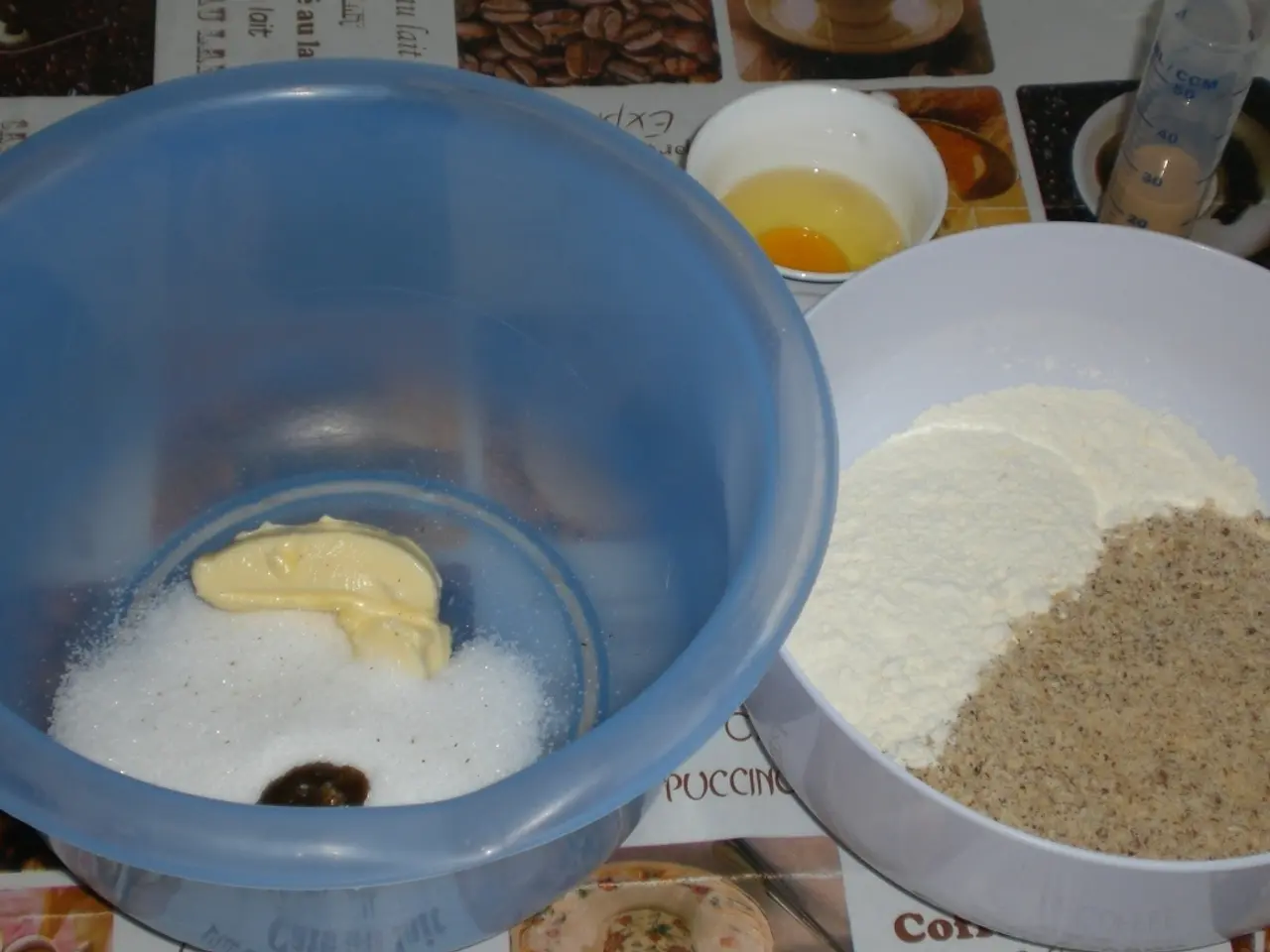Over-the-counter and prescription remedies for managing Irritable Bowel Syndrome
For individuals grappling with the discomfort of Irritable Bowel Syndrome (IBS), relief may come in the form of dietary changes and various medications.
Dietary Changes
Adopting a high-fiber diet, avoiding larger meals, keeping a food diary, and following a low FODMAP diet are some dietary adjustments that may help alleviate IBS symptoms [1]. Additionally, it is advisable to limit or avoid certain foods such as milk, coffee, carbonated drinks, alcohol, artificial sweeteners, high-fructose corn syrup, and some fruits and vegetables to manage IBS symptoms more effectively [2].
Over-the-Counter (OTC) Medications
Common OTC medications used to alleviate IBS symptoms include fiber supplements, laxatives, and antispasmodics, each addressing different IBS symptoms such as constipation, diarrhea, and abdominal pain.
Fiber Supplements
Fiber supplements, like Metamucil and Fiberall, add bulk to stool and help regulate bowel movements, commonly recommended to ease constipation and balance stool consistency in IBS [1][3].
Laxatives
MiraLAX, an osmotic laxative containing polyethylene glycol 3350, draws water into the colon to soften stool and relieve constipation typically within 1 to 3 days. It is OTC but should be used cautiously in IBS, especially with underlying kidney disease or abdominal pain [1][3].
Antispasmodics
OTC antispasmodics and peppermint oil help reduce abdominal cramping and pain associated with IBS. Peppermint oil is recognized for its effectiveness in soothing intestinal spasms [4][5].
Prescription Medications
Prescription medications can provide additional relief for IBS symptoms.
Dicyclomine (Bentyl)
An anticholinergic, Dicyclomine relieves stomach cramps by slowing gut motility, helping reduce IBS abdominal pain and spasms. However, it can interact with medications that increase gut motility, so monitoring is needed [4].
Rifaximin (Xifaxan)
An antibiotic approved by the FDA specifically for IBS, particularly IBS with diarrhea (IBS-D), Rifaximin modifies gut bacteria and can reduce symptoms like bloating and diarrhea [2].
Tegaserod (Zelnorm)
Used for IBS with constipation (IBS-C), Tegaserod works by enhancing gut motility to relieve constipation [4].
Other prescription agents may include antidiarrheals or medications targeting pain, but these are less commonly the initial recommendation.
Effects of These Medications
- Fiber and laxatives improve bowel regularity and stool form.
- Antispasmodics reduce intestinal muscle spasms and abdominal pain.
- Rifaximin alters gut flora to reduce IBS-D symptoms.
- Tegaserod increases bowel motility to ease constipation.
Despite the array of available options, surveys show that most patients and providers rely primarily on OTC treatments and lifestyle changes initially. Prescription medications can help many patients but are less frequently requested or recommended, partly due to limited satisfaction with current drugs for pain relief and bowel symptom control [2].
In summary, IBS symptom relief is commonly managed with a combination of fiber supplements, laxatives, and antispasmodics OTC, supplemented by prescription drugs like rifaximin or dicyclomine when needed, each targeting specific IBS symptoms such as constipation, diarrhea, or abdominal pain [1][2][3][4][5].
It is essential to consult a doctor or pharmacist before beginning any new medication treatment for IBS. Additionally, natural treatments like getting enough physical activity, reducing stress, and ensuring quality sleep can also help reduce IBS symptoms.
[1] https://www.ncbi.nlm.nih.gov/pmc/articles/PMC6645152/ [2] https://www.ncbi.nlm.nih.gov/pmc/articles/PMC6475107/ [3] https://www.ncbi.nlm.nih.gov/pmc/articles/PMC6583830/ [4] https://www.ncbi.nlm.nih.gov/pmc/articles/PMC6475136/ [5] https://www.ncbi.nlm.nih.gov/pmc/articles/PMC6645150/
Shoppers seeking relief from the discomfort of Irritable Bowel Syndrome (IBS) may find it helpful to consider dietary changes and a range of medications, both over-the-counter (OTC) and prescription.
For instance, a high-fiber diet, food diaries, and a low FODMAP diet can be beneficial, while limiting certain foods like milk, coffee, and some fruits and vegetables might alleviate symptoms.
Common OTC medications include fiber supplements like Metamucil and Fiberall, laxatives such as MiraLAX, and antispasmodics with peppermint oil. These address issues such as constipation, diarrhea, and abdominal pain.
Prescription medications like Dicyclomine (Bentyl) and Rifaximin (Xifaxan) are also available. Dicyclomine slows gut motility to relieve pain, while Rifaximin modifies gut bacteria to reduce diarrhea symptoms. Tegaserod, another prescription option, enhances bowel motility to alleviate constipation.
Natural treatments such as physical activity, stress reduction, and quality sleep can also help reduce IBS symptoms. However, it's crucial to consult a doctor or pharmacist before commencing any new medication treatment for IBS.
Moreover, IBS management can involve addressing other health-related aspects like mental health, men's health, women's health, skin care, aging, and weight management. This holistic approach to wellness might involve fitness and exercise, nutritional guidance, and therapies and treatments for chronic diseases and medical conditions like neurological disorders.
In the workplace, wellness programs focusing on health and wellness can provide resources and support for individuals dealing with IBS and other health challenges. Within this context, science continues to evolve, with promising developments such as CBD's potential role in managing IBS symptoms.
In conclusion, IBS symptom relief can be achieved through a combination of lifestyle changes, OTC treatments, and prescription medications, each targeting specific IBS symptoms. Consulting a healthcare professional is essential for a personalized treatment plan.




